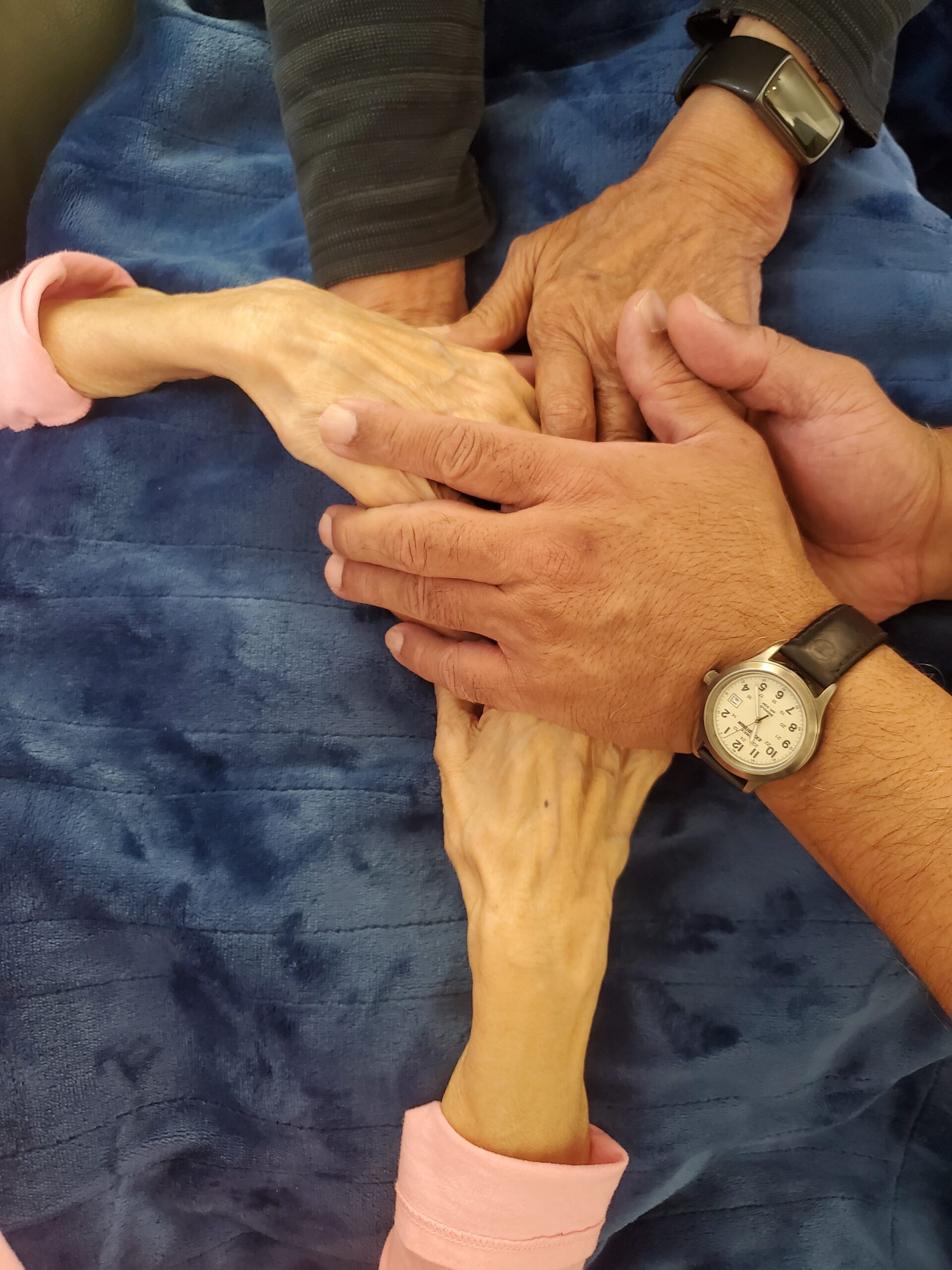“If your compassion does not include yourself, it is incomplete.” — Buddha
Honoring the Past, Holding Space in the Present, and Preparing for the Future
End-of-life care is one of the most profound experiences we face, yet few of us are prepared for it. In our fast-paced world, we struggle to pause, reflect, and hold space for what truly matters.
Who helps you navigate these moments? Who ensures your loved one’s wishes are honored? Who supports you while you support them?
End-of-life care doesn’t follow a timeline. It can begin with a terminal diagnosis, in an imminent situation, or in the final days of life. The responsibility often falls on family—people already carrying the weight of love, grief, and decision-making. I know this weight well.
A Personal Journey of Holding Space
Before I knew the word “doula,” I was already doing this work.
Losing 20 family members and close friends, including my brother, grandparents, and both parents, shaped my understanding of death. As my father’s caregiver, I navigated advanced care planning, difficult medical decisions, and the emotional burden of ensuring his peaceful passing at home.
I searched for support, but my closest circle was grieving with me. Grief doesn’t begin when someone dies—it begins when we anticipate loss.
Now, I use my lived experience and 20+ years of professional expertise to support individuals and families through life’s final transition.


What is an End-of-Life Doula?
An End-of-Life Doula (Thanadoula or Death Doula) provides non-medical support for the dying and their caregivers. I work alongside hospice, palliative care teams, and healthcare providers, but I do not replace medical care.
I do:
- Sit vigil with those who don’t want to die alone (yes, sometimes I am present when someone passes).
- Guide families through advanced care planning and personal wishes.
- Provide emotional and spiritual support tailored to cultural needs.
- Assist with Medical Assistance in Dying (MAiD) discussions and logistics.
- Navigate Section 7 & Section 9 Representation Agreements for medical decision-making.
- Help families honor grief, intergenerational loss, and cultural traditions.
I do not:
- Provide medical care or pain management.
- Replace hospice or palliative teams.
- Make decisions for families.
Doulas bridge the gap between medical care and emotional, spiritual, and practical needs.
End-of-Life Planning: What’s the Difference?
Many assume a Will or Power of Attorney (PoA) is enough—but these don’t cover critical living decisions.
- A Will only applies after death.
- A Power of Attorney (PoA) covers financial decisions, not medical or personal care.
- An Advance Care Plan ensures your medical wishes guide your loved ones when you are unable to speak while you are alive.
- Section 7 Representation Agreements assign responsibility to someone you choose to cover routine personal and healthcare decisions.
- Section 9 Representation Agreements allow broader medical decision-making, including MAiD, life support, and pain management.
- Advanced Directives ensure that your wishes are strictly honoured when you are unable to speak with limited to no input from others.
Planning before a crisis ensures control over your final journey.
How I Can Help
As an End-of-Life Doula, I offer:
- Guidance on advanced care planning – ensuring medical and personal wishes are documented.
- Caregiver support – helping you navigate the process while prioritizing emotional well-being.
- Legacy & remembrance planning – creating meaningful rituals and memory projects.
- Vigil sitting – providing presence for those who don’t want to die alone.
- Intergenerational grief support – assisting families through cyclical and anticipatory grief.
- Cultural sensitivity in end-of-life care – honoring diverse beliefs and traditions.
The Power of Pausing: Doula & Eldercare Services
In a world that rushes forward, death asks us to slow down. To be present. To reflect on our lives and the legacies we leave behind.
But we often don’t know how.
I help families and individuals find this space—whether they are at the beginning of an Eldercare journey, facing a terminal diagnosis, or in the final days of life. There is no “right time” to start.
[Explore my Eldercare Services]
With 20+ years of experience and a deeply personal understanding, I help families grieve, remember, and find peace.
If you are facing this journey and don’t know where to start, reach out today. This is hard—but you don’t have to navigate it alone.




